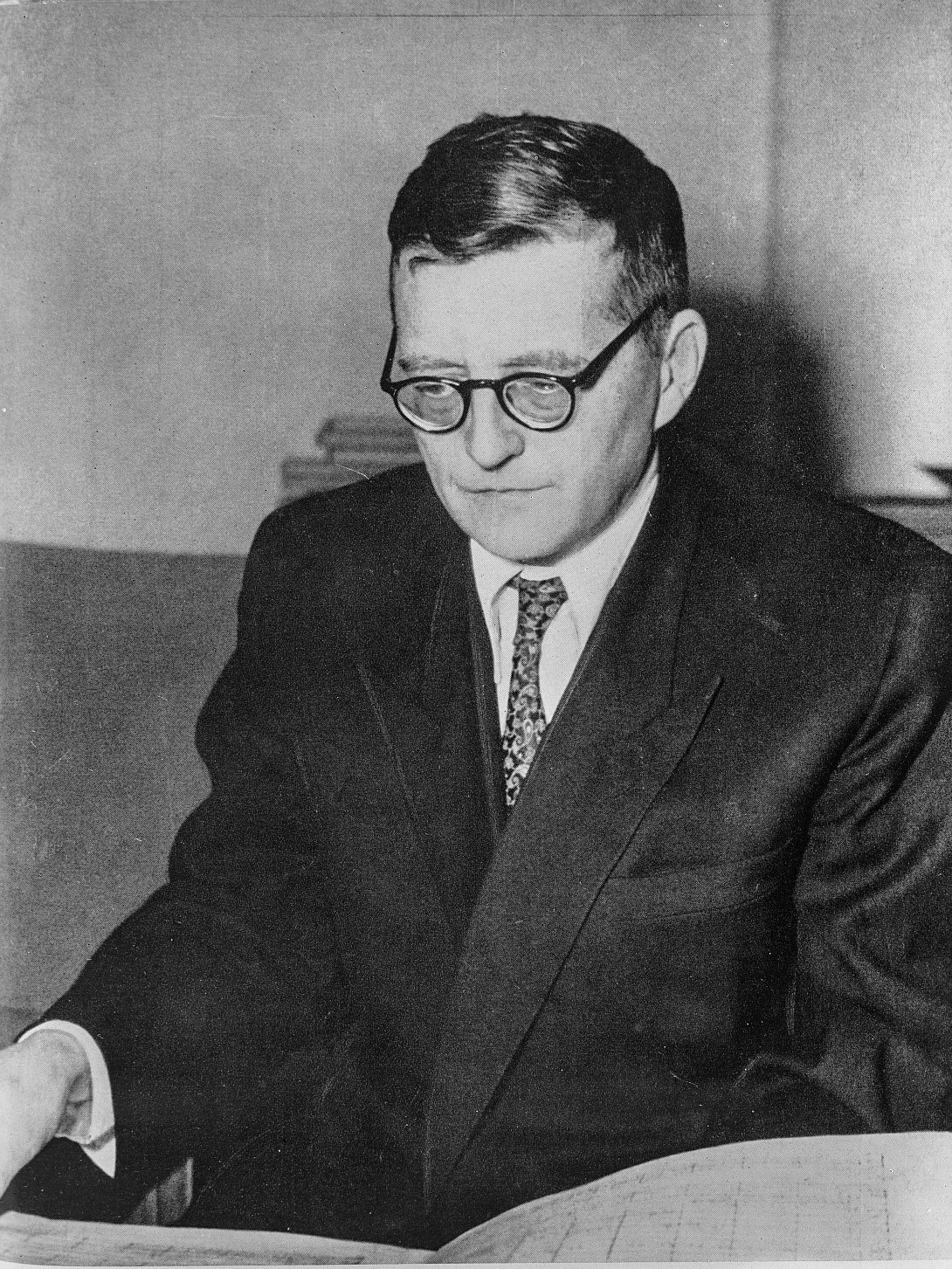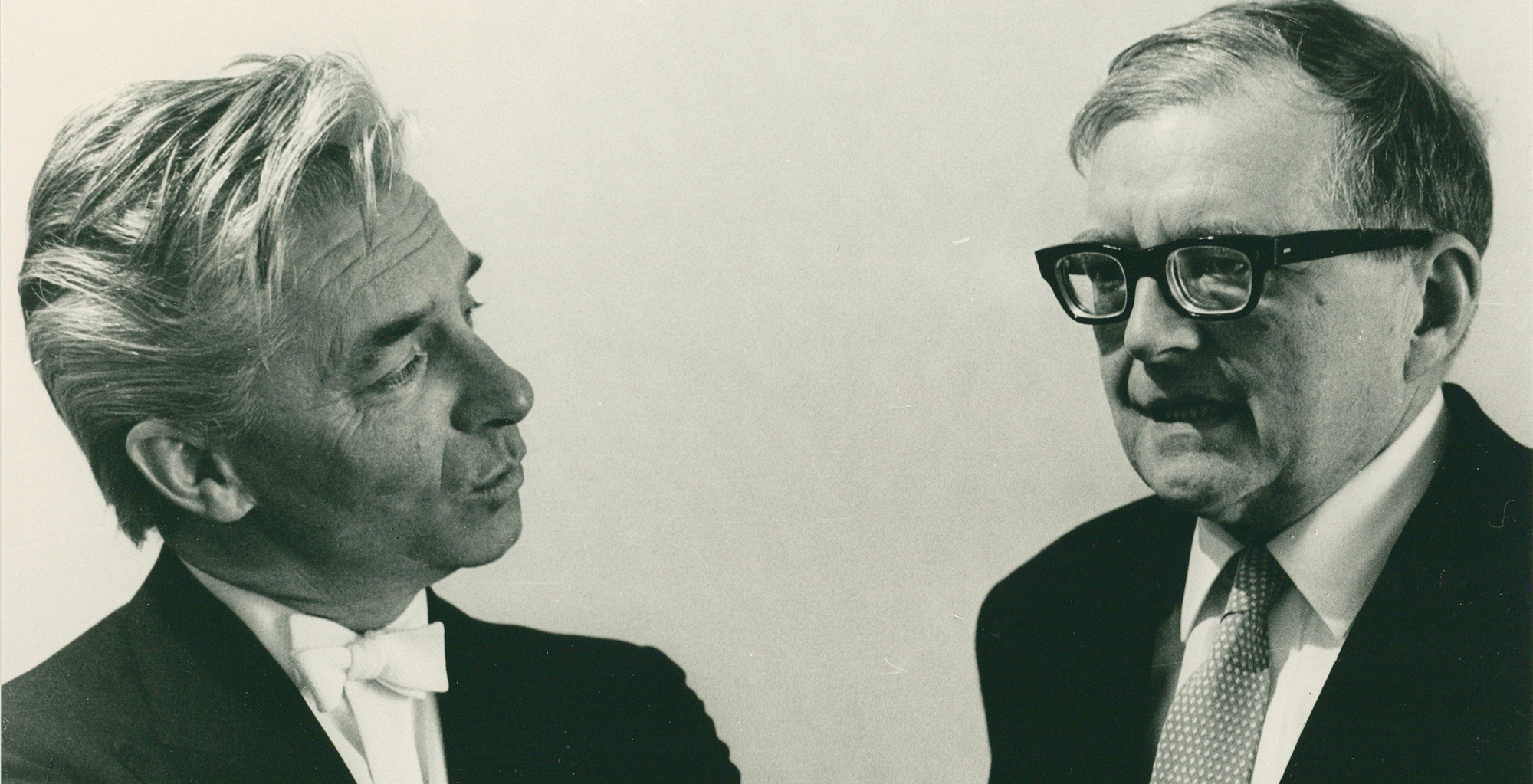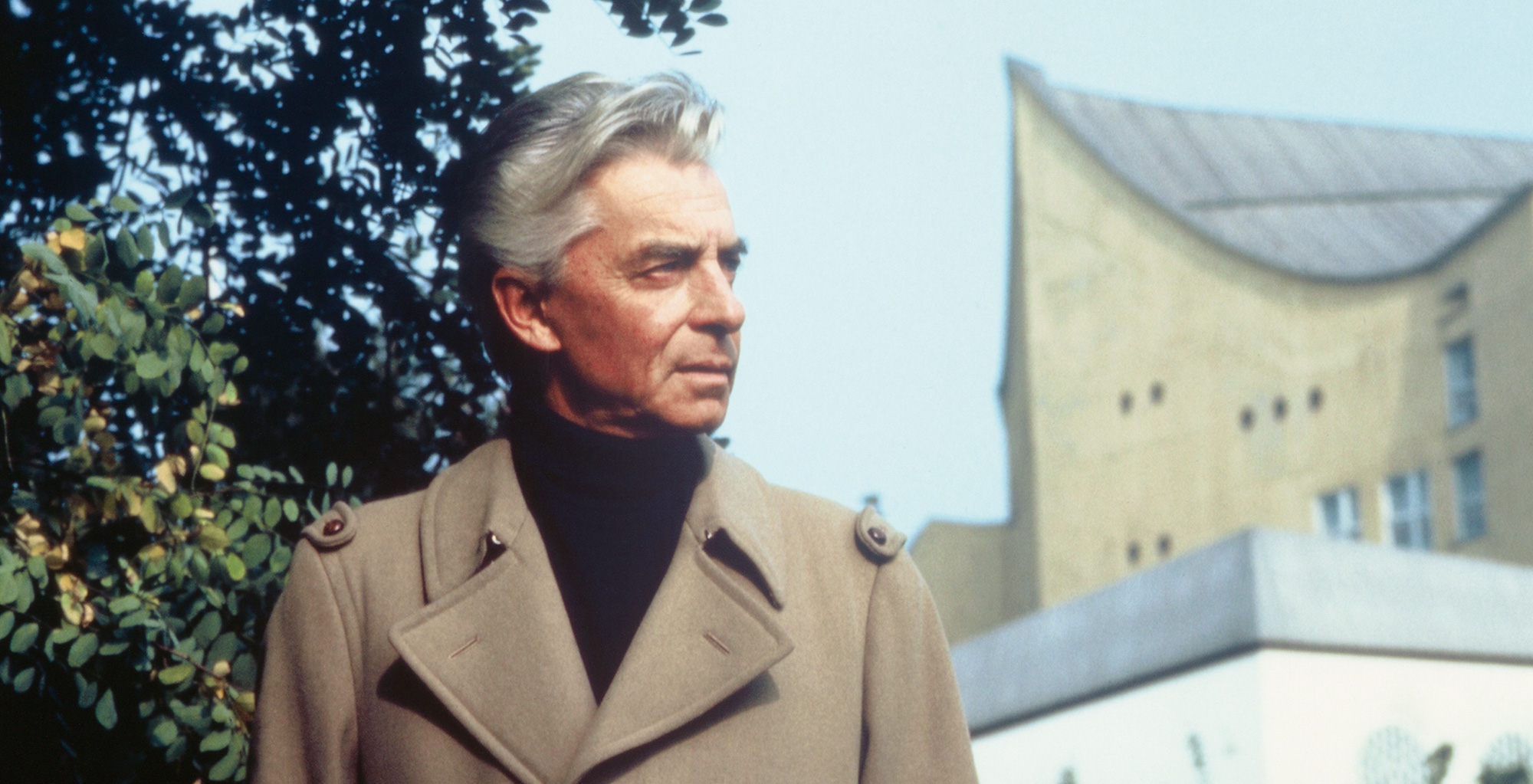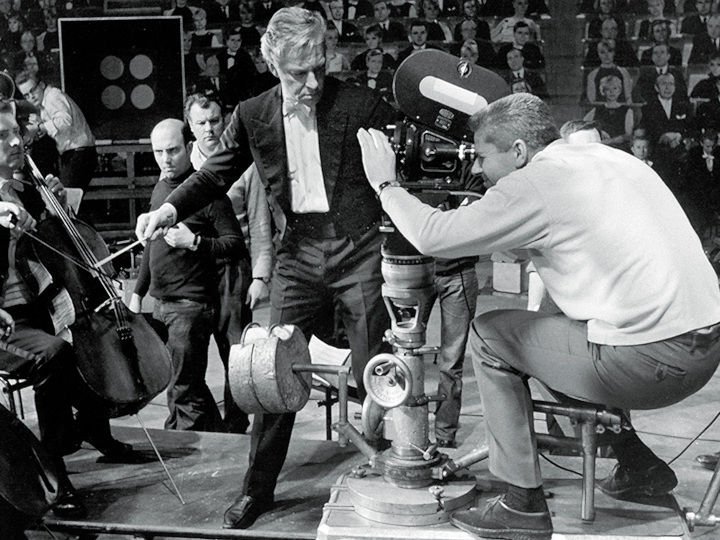- History
- Orchestra History

With the Berliner Philharmoniker, the music of Dmitri Shostakovich was often reserved for the chief conductor. Herbert von Karajan and Sir Simon Rattle set standards with their interpretations. Now Berliner Philharmoniker Recordings is releasing the recordings of Shostakovich’s Eighth, Ninth and Tenth Symphonies with chief conductor Kirill Petrenko. It is the second major joint CD edition. A stunning document, that continues the orchestra’s long-standing Shostakovich reception, which we look back on here.
The audience certainly did not come to the Philharmoniker concert on 6 February 1928 because of the unknown composer “D. Szostakowicz” on the programme announcement. They wanted above all to see the famous pianist Artur Schnabel and the acclaimed conductor Bruno Walter. Walter, who was rather reticent about performing so-called ʻnoveltiesʼ, presented the German premiere of First Symphony by the then 21-year-old Shostakovich that evening because he had met him shortly before in Leningrad, and had come to appreciate the creator and his work. Written as a graduation project for the conservatory, the First Symphony brought the young Russian phenomenal success worldwide, including in Berlin. “What is so pleasantly touching about the composer is that he finds the courage to be natural without falling into philistinism,” was the comment in Signalen für die musikalische Welt after the concert. However, the performance of a work by Dmitri Shostakovich by the Berliner Philharmoniker initially remained a one-off event.
Established in the orchestra’s repertoire
But this changed very quickly after the end of the Second World War. In July 1946 – by now Shostakovich was leading a life between approval and repression in the Soviet Union under the rule of Stalin – the orchestra, conducted by Sergiu Celibidache, presented the Fifth Symphony to the public for the first time, soon followed by the Seventh and the Ninth. From then on, these three works became part of the orchestra’s core repertoire and were performed on a regular basis.
Herbert von Karajan, head of the Philharmoniker from 1956, conducted the German premiere of the Tenth Symphony in 1959 – and from then on became its musical ambassador. Whenever the Russian’s name appeared on the programme of a Karajan concert, it was always the Tenth Symphony. Conductor and orchestra loved it because the numerous wind solos typical of this work gave the musicians the opportunity to show their skills as soloists.
The legendary concert in 1969, at which the Philharmoniker performed the Tenth under Karajan’s direction on the occasion of their Russian guest performance at the Moscow Conservatory, was also an unforgettable experience. Sitting in the audience, breathing heavily and trembling with excitement – as a report in Die Welt put it – was the 62-year-old Shostakovich. After the concert “he rises, climbs the small staircase to the stage, Karajan rushes towards him, grasps his hand, the applause becomes – however hackneyed it may sound – a veritable hurricane”. A great moment in the history of the orchestra!
Shostakovich first-hand
While Karajan conducted only the Tenth with the Philharmoniker, in the 1970s and 80s it was mainly guest conductors such as Dmitri Kitajenko, Gennadi Roschdestwenski, Riccardo Chailly, Bernard Haitink and Semyon Bychkov who presented the composer’s other symphonies.
From 1988 onwards, the orchestra had two guest conductors, Kurt Sanderling and Mariss Jansons, who had first-hand experience of Shostakovich’s work through their long-standing friendship with the composer and impressed audiences accordingly with their authentic renditions. Claudio Abbado concluded his last Berlin concert as head of the orchestra in 2002 with a performance of the film and stage music for King Lear. Sir Simon Rattle was the first chief conductor to present an entire concert only with works by Shostakovich: marking the 100th anniversary of the composer’s birth, he juxtaposed his first and last symphonies. Not to forget that also during Simon Rattle’s tenure, the Philharmoniker ensembles increasingly focused on Shostakovich’s chamber music. The performance of all the string quartets by the Philharmonia Quartet received much acclaim.
Fitting for our time
The works of Dmitri Shostakovich are also close to the heart for our current chief conductor Kirill Petrenko. Most recently, he performed Shostakovich’s Eighth and Ninth with the Philharmoniker without an audience in the Digital Concert Hall during the Corona lockdown. Together with the Tenth, these recordings now appear as part of the orchestra’s second major CD edition with its chief conductor. “I grew up with his music,” Kirill Petrenko revealed in an interview for the Digital Concert Hall. The ambiguity of his art, the hidden messages, the composer’s confrontation with the repression, war and suffering of his time fascinate and move him. “Shostakovich was a humanist. He believed in people.”

Triumph in Moscow: Shostakovich’s 10th Symphon
The Moscow concert conducted by Herbert von Karajan with Shostakovich in the audience is legendary.

Herbert von Karajan: Sound aesthete and media star
Karajan, chief conductor from 1956-1989, embodied the conductor type of the 20th century: energetic, charismatic, visionary.

Herbert von Karajan: Maestro for the screen
He was not only a brilliant musician, but also a visionary in terms of his use of media to distribute his art. This film traces how, step by step, Karajan made the medium his own.